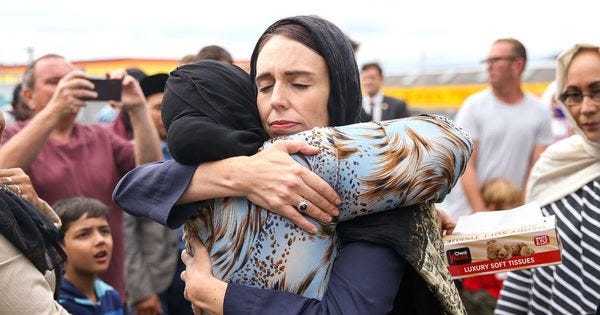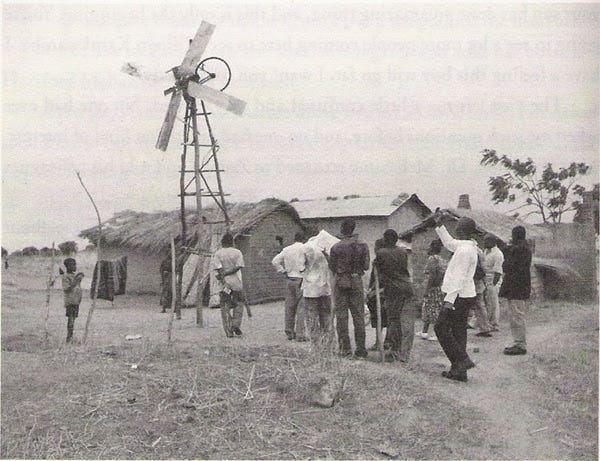Originally published on Revue - April 8, 2019
Unraveling Hero Worship - Part 2
If you’ll grant me license to horn toot, it feels as though the debate I introduced in the last issue–is it better to have heroes and lose them than to never have heroes at all?– has been inescapable over the last month.
Revelatory HBO documentaries exposing inconvenient truths about Theranos and Michael Jackson have been grabbing headlines and inspiring think pieces (including this brilliant NYT Daily podcast episode). As the menu of Democrats announcing their presidential campaigns expands to Cheesecake Factory levels, they are taking turns being put under the microscope and holding their breath until someone else’s dirty laundry starts smelling worse. And in a SheBelieves Cup game against England, the US Women’s National Team sported jerseys emblazoned with their female role models’ names on the back to celebrate Women’s History Month.
(I’m off to France with my girlfriend Candace in late June to watch these legends defend their World Cup title – get in touch if there’s a chance we’ll cross paths).
Furthermore, it was an honor to have a number of you weigh in with your own analysis of the hero fallacy after the last issue, and I have received permission to share several of those responses here. Yes, having subscribers who can flex such eloquence with their writing is wonderfully intimidating.
“It is important to distinguish between inspiring acts and inspiring people. When viewing someone who succeeds in impacting the world, we shouldn’t rush to worship them as human beings because that’s exactly what they are. No single human being is perfect, and even the most impactful citizens make mistakes.” - Jacob B., Chicago
“Our world is built of infinite Venn diagrams, and what may be good for one circle may adversely affect another. Seeing heroes fall or fail reminds us that people - even our heroes - change, and that they should never be above scrutiny. Revolutionary leaders like Sukarno and Robert Mugabe were crucial and formidable in uniting nations against a common injustice, but they were ill-equipped [to lead] sovereign states and became oppressive dictators themselves.” - Dom T., Kuala Lumpur
“"A wise man once said: “if you think someone is perfect, you don’t know them well enough.” Perhaps no one knows this better than my hero, Vince Staples, who I have long admired for his unabashed honesty and general lack of excitement in humanity. I found myself heeding the sage advice of his recent GQ interview, where he explained, "You should look at me and be like, he’s not shit. Because I look at me and I feel like I’m not shit. And it’s cool because I think everyone is the same, we’re all on the same path of life. If I’m so great it’s like, how do you feel about yourself? Are you okay? Do you love yourself? Because I would like that for you.” - Will F., New York
Last time, I mentioned that the plan for this issue was to profile individuals that more of us should adopt as heroes, but given how fragile this characterization has proven to be, it feels cavalier for me to prescribe idols to anyone else. So let’s rebrand the following segment as…
Three People Liam Finds Ridiculously Impressive
Jacinda Ardern
38 year-old New Zealand Prime Minister Jacinda Ardern is the youngest female head of state in the world, yet quite a few more tenured leaders should be taking notes on how she governs. A new mother herself, Ardern passed legislation last July extending paid parental leave to six months. Amidst an inhumane standoff between Trump and former Australian Prime Minister Malcolm Turnbull over refugee intake in 2017, she repeatedly offered resettlement to 150 refugees toiling in Australia’s offshore camps. This week, she impromptu paid the grocery bill of a mother who, in corralling two whining kids, had forgotten to bring her wallet to the store.
Above all, her grace and directness in the aftermath of Islamophobic terrorist attacks in Christchurch that took 50 lives on March 15th has set the standard for what national leadership should look like in the face of tragedy.
In addition to extending the customary thoughts and prayers, she:
vowed not to utter the gunman’s name, denying him the notoriety and spotlight the white nationalist would have craved
used Arabic greetings to address survivors and victims’ loved ones
affirmed the value of multiculturalism in New Zealand’s cultural life
worked with immigration services to expedite visa processing for foreign family members to attend the funerals
unambiguously condemned Islamophobia and white nationalism
announced a ban on military style weapons within a week of the attacks, making a mockery of the political gridlock around gun legislation in America
Ardern’s maternal instincts about how to care for those who are grieving have proven spot on, connecting with those affected on a personal and familial level. At the same time, she has leveraged her platform as prime minister of one of the world’s strongest, most respected democracies to loudly and clearly call out evil and preach unity.
Job well done, Mrs. Prime Minister.
William Kamkwamba
Better known as The Boy Who Harnessed The Wind, William Kamkwamba hails from Malawi, a country I am partial to after spending last July there working with a soccer academy that I continue to provide strategic and operational support to as a side hustle (more on that another time, I’m sure).
Upwards of 80% of Malawians rely on subsistence agriculture to feed themselves and their families, boxing them out of participation in a formal economy with real mobility and leaving them susceptible to hunger when the rains are uncooperative and the harvests sparse in turn. The 2001-2002 hunger season was particularly bleak, with short supplies, price inflation, and government mismanagement all conspiring to leave hundreds of thousands facing starvation.
William Kamkwamba’s district was hit worst of all. Already strapped for cash, his family had to pull him from school to redirect his tuition fees towards affording whatever grain was available (only 12% of Malawians graduate high school to begin with). Unperturbed in even the most desperate of circumstances, it was William’s intellectual curiosity at 14 years old that saved him, his family, and much of his village.
He snuck back daily to his school’s library to consume all he could about science, energy, and electricity, then would tinker with spare parts he scraped together in the local junk yard. A secondhand textbook entitled Using Energy proved to be the manual he needed to construct a DIY windmill in his backyard, providing electricity and irrigation to nearby homes.
Word spread about William’s stunning innovation, until eventually TEDGlobal organizers caught wind of his story. He was invited to speak at the conference in Arusha, Tanzania in 2007, stealing the show and opening the hearts and wallets of many in attendance. He subsequently enrolled at one of Malawi’s top high schools, and in 2014, he graduated from Dartmouth with a B.A. in Environmental Studies.
Actor Chiwetel Ejiofor (12 Years A Slave, The Martian, the guy who marries Keira Knightley in Love Actually) was so enamored by William’s story that he bought the movie rights and set about bringing the tale to life on screen as his directorial debut. He also stars as William’s father and even learned to speak Chichewa for the role. The film is available now on Netflix.
Yusra Mardini
Yusra Mardini is a 21 year old Syrian refugee living in Berlin. She is also an Olympian, a UNHCR Goodwill Ambassador, and a sponsored Under Armour athlete. As the video below illuminates, she should not be alive.
Yusra swam from the time she was three, and was part of the Syrian youth national team set up in her early teens until the country descended into Civil War in 2011. Her home was destroyed and two of her swim teammates died when her pool center was bombed. With her cousins and sister Sara, Yusra fled to Lebanon, then Turkey in 2015, and eventually took the treacherous plunge into the Mediterranean on a dinghy set for the Greek island, Lesbos. 20 passengers boarded a boat designed for six to seven.
At the first attempt, border patrol turned them back. At the second, the engine died after 20 minutes, water-logging the boat so that it seemed destined to sink and drag its occupants down with it. Of those on board, only Yusra, Sara, and two other men knew how to swim. For three and a half hours, they kept the dinghy afloat, guiding it in the direction of Lesbos until the engine sprung back into life and they arrived on Greek shores.
Over the next month, the sisters traversed Greece, Macedonia, Serbia, Hungary, and Austria by foot and bus before arriving in Germany and applying for asylum. An interpreter, upon hearing of Yusra’s passion for swimming, connected her with Sven Spannekrebs, a coach at a local club, who recognized her immense potential despite being a few years removed from rigorous training. He had targeted Tokyo 2020 qualification as a goal for Yusra, but those plans were expedited once the International Olympic Committee announced the formation of the Refugee Olympic Team. Yusra was granted a training scholarship and selected to compete at Rio 2016.
Her parents and two younger sisters have now also been granted asylum and moved to Berlin, and today Yusra is a leading spokeswoman for global refugee issues– in three languages (Arabic, English, German). Her memoir, Butterfly, was released last May.
Jacinda, William, and Yusra, I want to be like you when I grow up.






